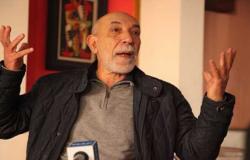This article is taken from the monthly magazine Sciences et Avenir – La Recherche n°928, dated June 2024.
“Smell is life.” These are the chemical reactions of metabolism that generate our body odors, whether they are pleasant or not. No metabolism, no odor. And in the absence of smell, we quickly feel cut off from the world, losing connection with life itself and with all the memories that perfumes have anchored in us: this explains the suffering that anosmic people experience. , deprived of this vital sensory capacity.
Odor ID Cards
Director of neuroscience research at the CNRS, Hirac Gurden reveals, in this essay soberly entitled “Feel”, a real talent for popularization coupled with an art of storytelling. The aromatic scents of coffee are made up of a thousand odorous molecules, which our olfactory perception synthesizes through a movement in three stages: detection, coding, and solicitation of the brain areas concerned with memory (including the hippocampus) or the emotions. And it is our olfactory bulb, equipped with millions of neurons, which sorts and organizes this information into real “identity cards of odors stored in our memory”, explains the author.
If perfumes provide pleasure, they would also heal
It also highlights the significant stages in a history of odors marked in its beginnings by links with pharmacy and medicine. Because if perfumes provide pleasure, they would heal at the same time. Bonaparte loved eau de Cologne, which he drank to soothe his stomach! A link found in the therapeutic scent gardens, created to promote sensory stimulation for Alzheimer’s patients. In any case, this work is enough to rehabilitate a meaning that Freud will have denigrated because… too animal in his eyes.
Credit: Les Arènes
“Feel. How smells affect our brain“, Hirac Gurden, Les Arènes, 252 p., €21






